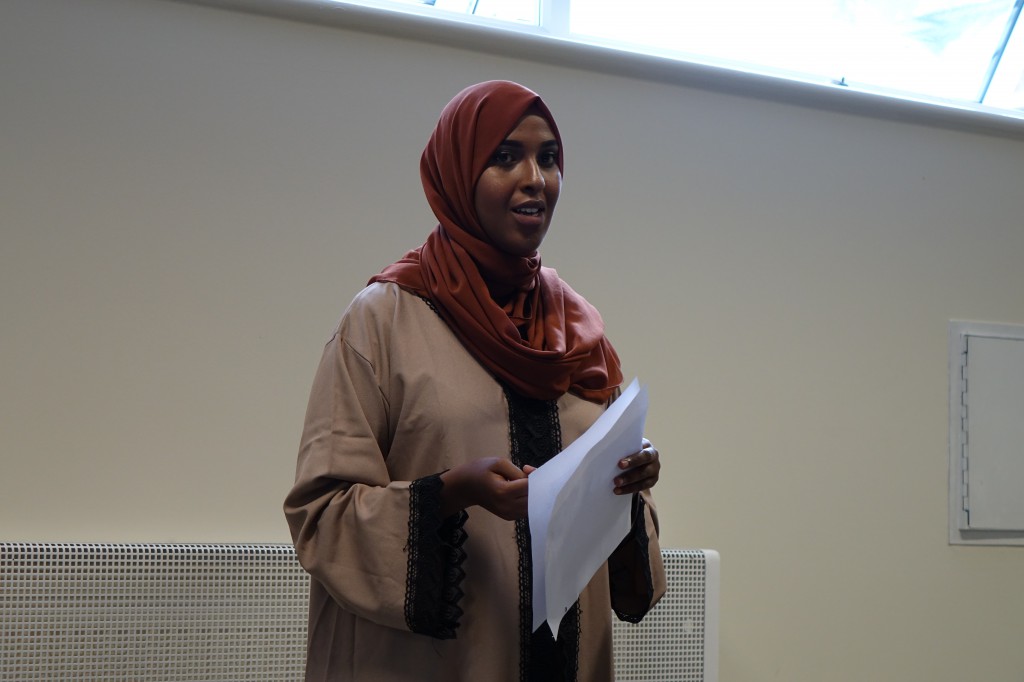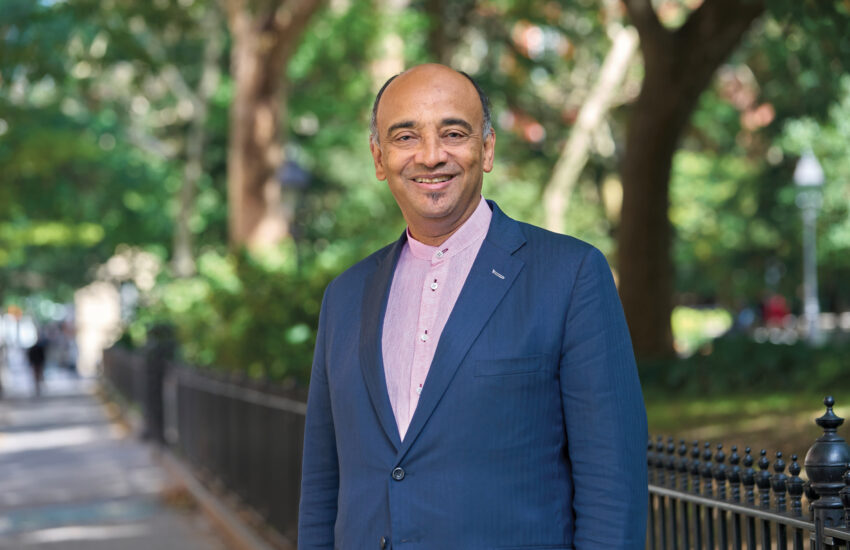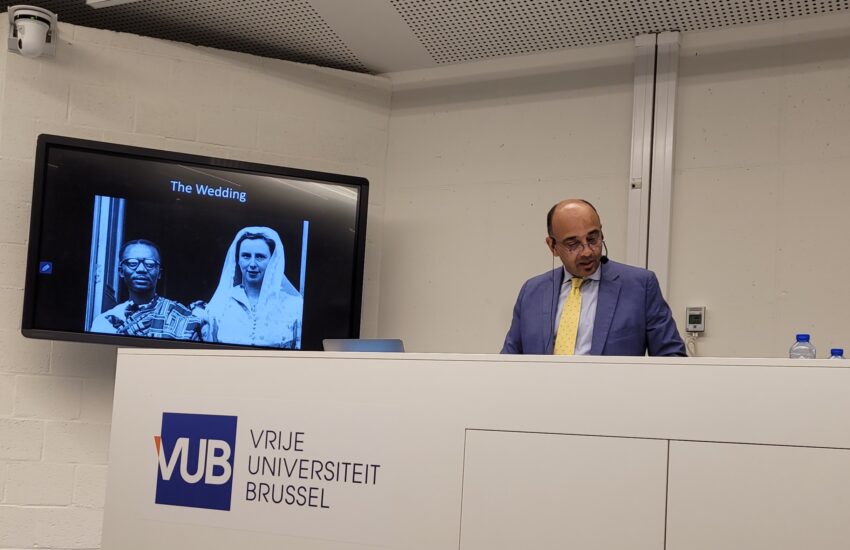Neimo Askar: The Science of the Art
Neimo Askar is a 22-year-old London poet who has blessed numerous stages with her visceral writing in a short space of time. Neimo is also a percipient photographer, industrious jumpers for sale events promoter and student of Bioscience. Her interview with Afropean’s Tommy Evans quickly evolves into a conversation between two creatives concerning identity, expression and perception.

TE: The most salient feature of your style is its subtlety. Your delivery is so understated it’s almost conversational.
NA: I like to read slowly when I’m reciting.
TE: Why’s that?
NA: It gives audiences time to digest what’s being said. Whereas if you go too fast there’s a lot of things that might be missed. You have to go home and watch footage of the performance on your phone to catch what was said.
TE: That’s funny, as the one thing my mum always used to say about rap was that it was too fast for her ears!
NA: Laughs.
TE: Perhaps spoken word poetry is more accessible to some… but back to your style. Is that leisurely delivery a considered choice or has it just evolved organically that way?
NA: That’s how it comes out. When I practice at home I don’t devote too much thought to delivering lines in a particular way. It’s more of a natural ambience, what the poem means to me at that moment.
TE: How do you go about composing your pieces?
NA: There are times when you have an idea come into your head and you jot it down – most of my poems are composed in that manner. I might start with a theme and build from there, arranging the words in a way I like.
TE: Do you edit on the page or screen?
NA: Both but I prefer writing to typing. It’s just-
TE: -More physical?
NA: Yeah, more physical. More intimate.
TE: 100%. Increasingly I write less that way, only because of life circumstances: I’m so busy I tend to write on my phone whilst travelling but it’s a non-intuitive technique inflatable slide I’ve had to learn. One area where I think we’re similar is that when the urge hits we just have to write. Are there certain things that trigger the process for you?
NA: Life experiences in general. I might be out, sitting on the train and certain situations occur. I go back home and draw upon particular objects, observations, experiences or ideas illustrating them through my poetry. My style of poetry is not just something you read it’s-
TE: -A more visceral experience?
NA: Yeah. That’s the word I was searching for. I prefer it that way. If it’s contrived it doesn’t feel sincere. It doesn’t feel like it’s coming from you. It feels like you’re just doing it for the sake of doing it. As opposed to having that moment of inspiration and then it’s just you and your pen.
TE: I can relate. I’m working on a commercial project at the moment and have found it so hard to the point where I’m up at night writing away and passing out on my sofa. In contrast to when a theme or title just comes into my head and the words flow easily onto the page.
NA: I get you. It feels less like work, more like your passion.
TE: Exactly. One thing Saraiya Bah [another emerging London poet recently interviewed by Tommy for Afropean] pointed out to me is that, either consciously or unconsciously, you import your experiences as a medical student into your writing.
NA: I didn’t notice it until she pointed it out. I went back home, looked through my writing book and noticed there were a lot of references. Every single piece!
TE: I always have an obligatory reference in my works to The Matrix, as I’m fascinated with illusion and reality. Our subconscious spills onto the page so I can appreciate how the body could bleed into your work, metaphorically speaking of course.
NA: I’ve been artistic from a young age, be it painting or drawing. It’s therapeutic: my way of relieving stress would be to pick up a paintbrush. I’ve always loved science too although I could never be a surgeon. I can’t stand the sight of blood! Anyway, I find it’s very quiet and private in the lab; working individually with a sample. There’s a sense of vulnerability in that you’re alone, immersed in your work with time to think and research, knowing that what you’re doing is impacting others. I guess the vulnerability expressed in poetry enables you to relate to people as well. A shared emotion. For me, that’s how the two disciplines relate – if that makes sense?
TE: Totally. I love the image you conjured of the lone researcher immersed in their project and how you juxtaposed it with the writer at work. The act of writing is a solitary process. Whilst working on a book a number of years ago the thing I missed the most was collaborative creativity. It’s a lot more exhilarating working in tandem with someone else, bouncing ideas off each other. But there’s also purity in the solitude of writing too. I can definitely discern the overlap between the scientist and scriptwriter, so to speak. Plus for me as an artist there’s a magic about science, as I don’t understand it fully. Conversely, as a creative practitioner, I understand the science behind the art, which can break the illusion shattering the spectacle on stage. I experience a greater sense of wonder watching Brian Cox documentaries about black holes and dark matter, as science is so alien to me. Pun intended.
NA: I sit in lectures with my classmates and we’re all just in in awe. The human body is a work of art. In researching the body you are exposed to its beautiful language. For me, that’s what science is: trying to understand your whole being. It’s fascinating. For example, the process it takes to break down glucose is so complicated, there are three different cycles and each cycle uses innumerable enzymes to do the job… it’s like you’re staring at yourself in a way that you could never envision. I’ll look through a microscope at blood cells and think: whoa, that’s me!
TE: How does identity inform your art?
NA: Day to day you might encounter racism and Islamophobia on account of being a Black Muslim woman so a lot of my writing centres on that. It’s part of my experience. You have to resist so many obstacles daily. Simply by existing you represent something that so many people don’t want to see. There are so many spaces where you might try to fit in and find you’re not welcomed.
TE: Does it get to the point where you have no desire to fit in and that becomes empowering?
NA: It does. You become unapologetic about your being. This is who I am, if you don’t like it, I don’t care. I’m certainly more comfortable with who I am these days. When you get on the mic people see you for who you are. Poetry can take away expectations: you become the words you share in the eyes of the audience.
TE: Now is that the real you or just part of your personality you accentuate to connect with the crowd? A “hyper” version of yourself that is performed?
NA: Yeah.
TE: The public then become enamoured with that one aspect of yourself you’ve manifested on stage or screen but the complete person is a much more complex creature. Yet the two are conflated and your deficiencies are overlooked – even forgiven – because you’ve been gifted with a talent that you become loved for. The audience might be in awe of our way with words as poets but off stage we could be very different people.
NA: People say I come across as very confident on stage but when they speak to me off it I’m more shy and awkward. My inner Neimo comes out when I perform. I think you’re quite the same though.
TE: Maybe it’s because I’ve been doing this for so long. I do think performance is an accentuation of character. There’s a certain ammount of control one can exert in that short period of time you have people’s attention to shape their perception of you, whether you’re a poet, actor or athlete. You present the apex of your humanity. All the best things about you condensed into an atom that’s shared for that moment.
NA: A perfect example of that is when I attended one event last year and the poets who performed – if you were to see them in the street you might think they were ‘hoodrats’. Yet there was so much vulnerability in their work. They shared things that you wouldn’t expect to come from them. Appearances are deceiving.
TE: So is the stage a space you can-
NA: -Be yourself.
TE: Like Kanye said: “We’re all self-conscious, I’m just the first to admit it.” I find poetry allows for honesty in expressing emotion. Maybe there are not many spaces in our society where you can do that so it’s a beautiful thing.
NA: Definitely: if you’re working 9-5 you rarely have time for self-reflection.
TE: I think that’s it. I guess many people, with all the demands of modern life, probably don’t hold themselves to account very rigorously. However, when you reach a certain level of gnosis you cast a much more scrutinising gaze on the self. The challenge is how to catalyse that awakening.
NA: Certain situations affect the spirit and if they do you have to remove yourself from that crowd or environment. Or you might avoid certain habits you previously mechanical bull for sale indulged in knowing how much they impact your soul. You notice that in people too, for example, in a group of friends there might be one person in denial of their emotional and spiritual needs.
TE: So with regards to the company you keep: are there any poets out there inspiring you?
NA: Obviously yourself.
TE: Thank you. The respect is mutual.
NA: I like your style. It’s very distinct. It does have that impact. My mum is a big fan of yours. She’s like: where’s that cadaan [Somali for white] guy?
TE: That’s the beauty of art: if done correctly it can transcend and touch different crowds.
NA: Mohamed Writes too. His level of poetry is something else. Saraiya Bah: her poetry stays with you. You’ll be listening in her presence and she’s still there when you go home. Troy Cabida. He sent me a poem the other day and I thought I just don’t want to write any more! I’m leaving this (Laughs).
TE: I know the feeling.
NA: The thing I love the most about his poetry is its vulnerability. In our society so much pressure is placed upon you not to show vulnerability, especially men. To be in the presence of human beings who are not shy or afraid of being themselves, just basically existing – I’m inspired by that.
Twitter: @a_neimo


